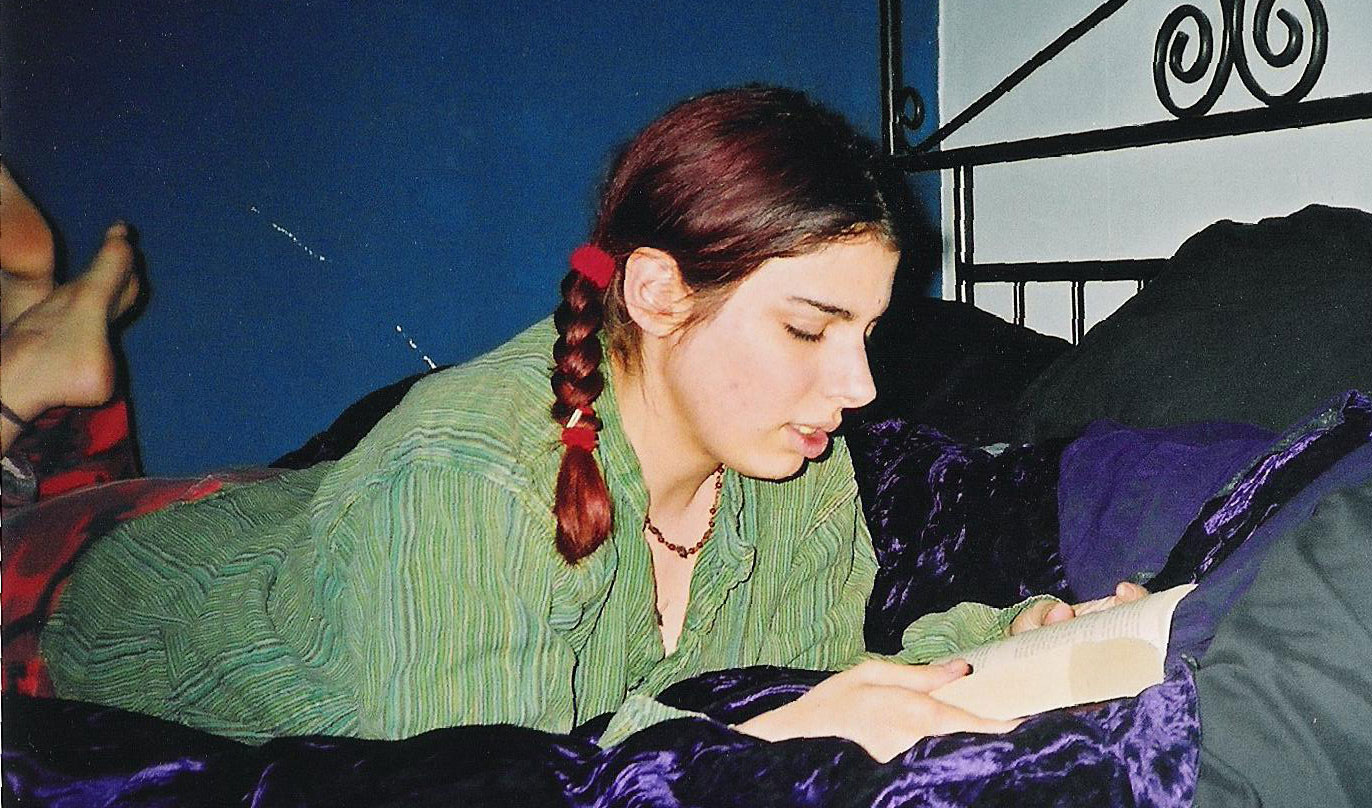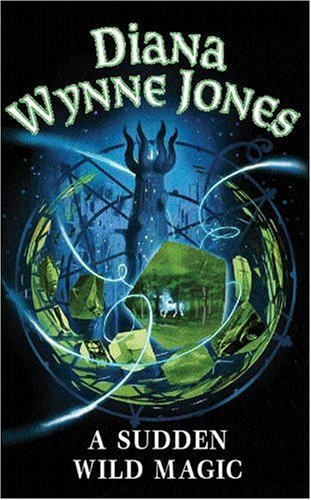 Steven Brust is slowly ploughing his way through a fantasy series that will ultimately have at least 18 titles (not counting backstories and sidestories about other characters). He started in 1983 and has produced 13 so far (again not counting backstories and sidestories) which gives him a productivity of almost one novel every two years. Iorich, published in 2010, is book 12 (counted in order of publication, internal chronology is more complicated).
Steven Brust is slowly ploughing his way through a fantasy series that will ultimately have at least 18 titles (not counting backstories and sidestories about other characters). He started in 1983 and has produced 13 so far (again not counting backstories and sidestories) which gives him a productivity of almost one novel every two years. Iorich, published in 2010, is book 12 (counted in order of publication, internal chronology is more complicated).
I’ve been collecting Draegaera books since the 1990s and had almost a complete matching set. Unfortunately the cover design has changed with this latest book and I will have to resign myself to non-matching editions from here on. One reason I didn’t get this book last year was that I was waiting for the paperback. For a time I bought the hardbacks as they came out but I’m trying to fit more books on my shelves and hardbacks take up too much space. Another reason is that I feel this series has severely dropped off in quality. From the puff quote on the back, Cory Doctorow disagrees with me to the extent that I wonder if he was reading a different book.
The problem is that the early books in the series were so very good. In Taltos we met Vlad Taltos, a human assassin working the mean streets of Adrilankha who gets mixed up with the high nobility of Draegaera. In Jhereg we found out more about Vlad’s job and the complicated politics of assassinations. In Yendi we learned about the twisting turning machinations of politicians and sorcerers. In Teckla the scope of the plot expanded to urban unrest and Vlad’s marital troubles. Since then we have followed Vlad through plots involving the highest people in the land, the Enchantress of Dzur Mountain, the Empress, the Gods and other beings who oppose the Gods. Vlad now has a price on his head and a Great Weapon on his belt.
Vlad is no longer the insouciant assassin and sarcastic courtier with no responsibilities and a knack for trouble I first admired. He’s grimmer, glummer, carries the weight of the world on his shoulders and seems to have lost interest in narrating his own adventures. Once he investigated dodgy happenings, created complex spells of courcery and witchcraft, matched wits with his betters and hatched plots of his own. Now the events of his life, world-shaking as they are, have been rendered much more mundane. In Dzur he went out to dinner and annoyed various people. In Jhegaala he tried to find some relations, failed, and annoyed various people along the way.
Now in Iorich, his friend Aliera is in prison for something everyone knows she is guilty of but is almost certainly not the real reason for her arrest. It takes Vlad almost the entire book to establish that this is the case and that although his various noble friends feel sick about it no one is doing anything about it for political reasons. Vlad wanders around Adrilankha easily avoiding the hundreds of people who have cause to wish him ill dead. He drops in on his old friends and makes sarcastic comments. He spends two days following someone and then realises this isn’t a good use of his time and stops. Eventually he comes up with a plan and invites various important people to be involved (their unexciting roles are basically to keep various other people busy at the critical time) but the critical details are not narrated. This is a far cry from the excitement of Jhereg in which Vlad had to ask everyone he knew for help, explained all the details and even then the reader wasn’t sure if it would work.
In Iorich there’s never a sense of danger. Even when Vlad gets beaten up it’s not as exciting as when he was beaten up in Yendi because he doesn’t know why, doesn’t care about it and his life isn’t in danger. If his life had been in danger he could have easily escaped by drawing his sword: one of the 17 Great Weapons which can destroy souls, save you from having your own soul eaten, slay Gods and kill other beings even more powerful than Gods. Despite all these advantages, Vlad isn’t totally happy with his sword because he’d like to have a conversation with it and doesn’t know how. (I can think of at least 5 characters who could teach him how but this option doesn’t appear to have occurred to Vlad.)
The life seems to have gone out of this series. Even the dialogue is flat where once it was sparkling. It may be deeply significant, especially if you’ve read the other books in the series and can guess what some of the people Vlad speaks to are feeling and thinking. But it’s not lively, doesn’t further the plot and doesn’t seem to get Vlad or the reader anywhere. Vlad barely bothers with the Iorich advocate he has hired and when he does he doesn’t say much of significance because he’s wary of the advocate witnessing against him. This does not make for a thrilling plot.
Eventually someone is conveniently stabbed and all the politics get sorted out – at least enough to accomplish the main purpose of Vlad’s mission, although no one is precisely elated about it. Job done. Another Taltos story completed.
These novels are my addiction. I can’t help caring about Vlad, about his ex-wife Cawti, the Enchantress of Dzur Mountain, Kiera the thief, Kragar the Jhereg boss, Daymar the Hawklord, Aliera and her cousin Morrolan, and the host of characters who have passed through the pages of the series so far. I’d have lied to meet The Demon again (who isn’t a Demon) and the Necromancer (who is) and the Demon Goddess Vera (opinions vary) – although I wouldn’t cross the street to meet Telnan after spending far too many hours in his company in Dzur.
But where were these people in Iorich? They all seemed to be drinking wine or eating cheese or off somewhere with Sir Not Appearing in This Book. Where was Mario? Since he’s every inch an assassin and turned up in the last book when we weren’t looking for him and weren’t bothered about him, why wasn’t he in this one when his lover was in danger of execution? What about Khaavren who is expected to show up in the next book, might he be interested in a political conspiracy? Isn’t his job to unravel this kind of stuff? For that matter where are the villains who spent the entire book off stage being sneaky behind the scene?
It’s not too late for this series to pick up again. After all, there are still a number of books to go. But we need to see Vlad fighting for something, or against something, or doing something more than just existing and fretting about his problems. Pull up your socks, Vlad, draw your Great Weapon and do something!
 The Hexes are back! VOID, the bindup edition of all three Hex books was published in the US by Simon & Schuster in November 2011.
The Hexes are back! VOID, the bindup edition of all three Hex books was published in the US by Simon & Schuster in November 2011. Steven Brust is slowly ploughing his way through a fantasy series that will ultimately have at least 18 titles (not counting backstories and sidestories about other characters). He started in 1983 and has produced 13 so far (again not counting backstories and sidestories) which gives him a productivity of almost one novel every two years. Iorich, published in 2010, is book 12 (counted in order of publication, internal chronology is more complicated).
Steven Brust is slowly ploughing his way through a fantasy series that will ultimately have at least 18 titles (not counting backstories and sidestories about other characters). He started in 1983 and has produced 13 so far (again not counting backstories and sidestories) which gives him a productivity of almost one novel every two years. Iorich, published in 2010, is book 12 (counted in order of publication, internal chronology is more complicated). The things I can do while reading now include knitting! It’s not very good knitting – but it will get better a lot faster now I can read while doing it.
The things I can do while reading now include knitting! It’s not very good knitting – but it will get better a lot faster now I can read while doing it.  A friend is writing a novel and had been considering using the idea of a game. I advised her against because it’s a well-established trope. While there may be some mileage left in the idea I think anyone considering fiction in this area should be aware of the work already done on this subject.
A friend is writing a novel and had been considering using the idea of a game. I advised her against because it’s a well-established trope. While there may be some mileage left in the idea I think anyone considering fiction in this area should be aware of the work already done on this subject.
